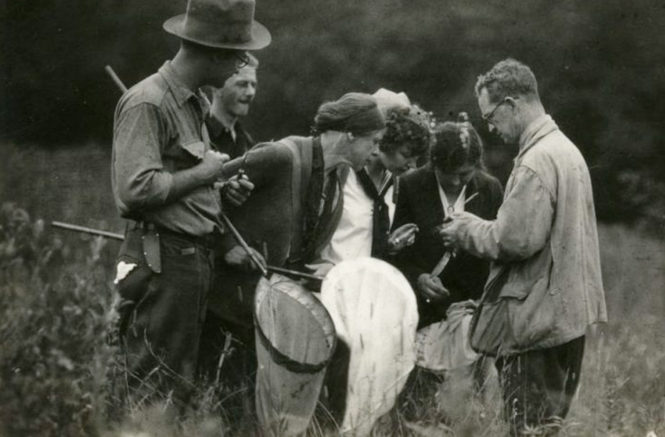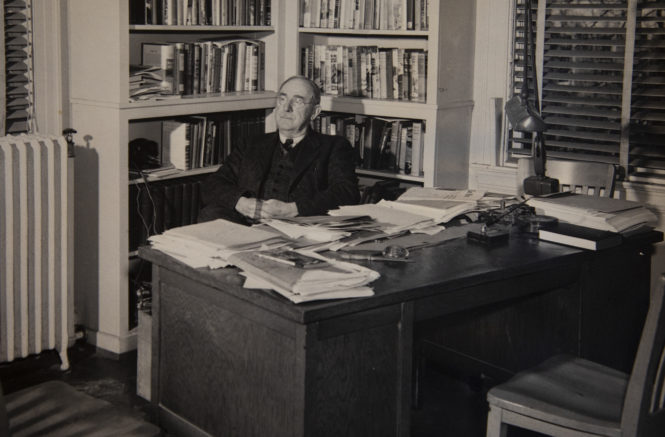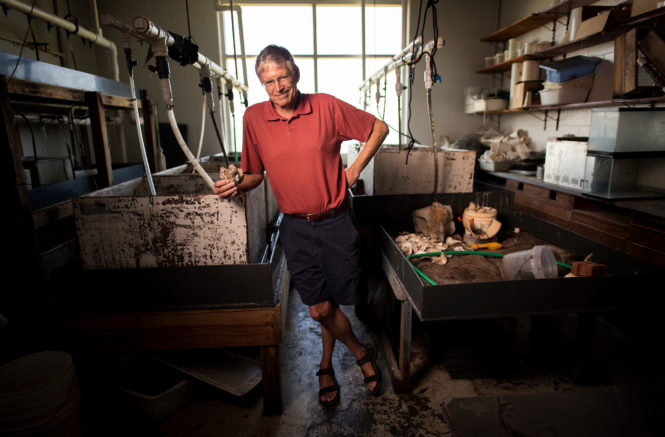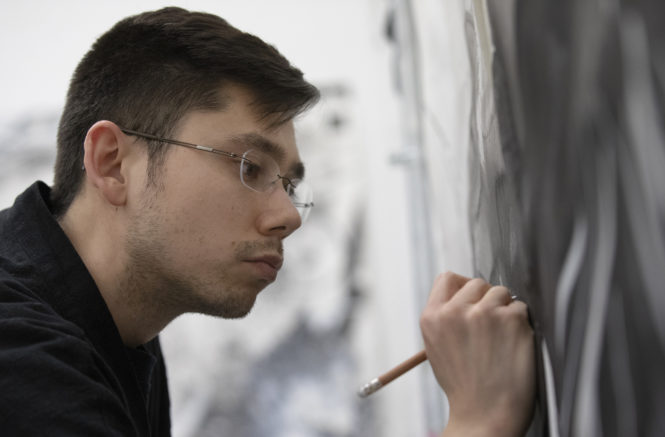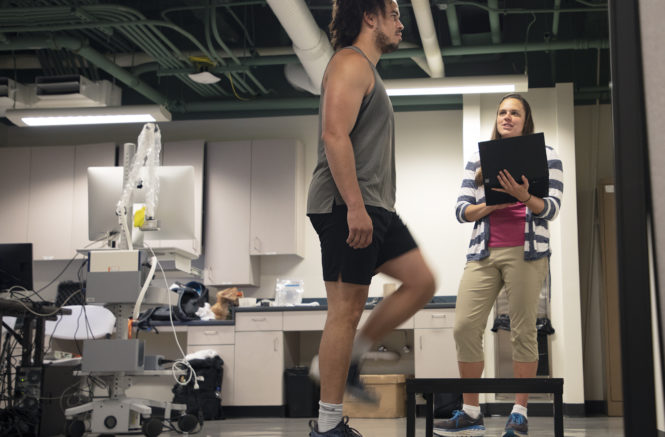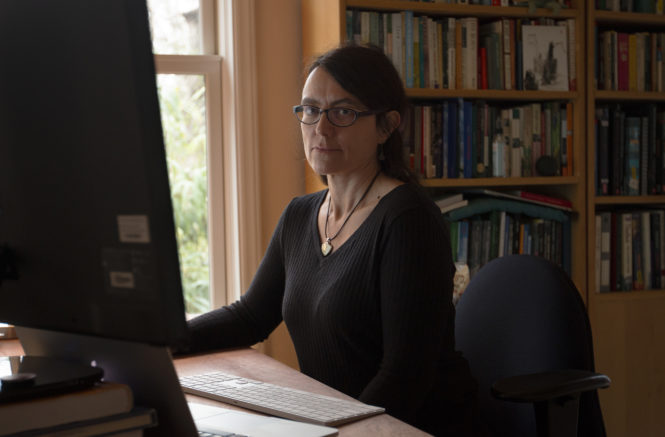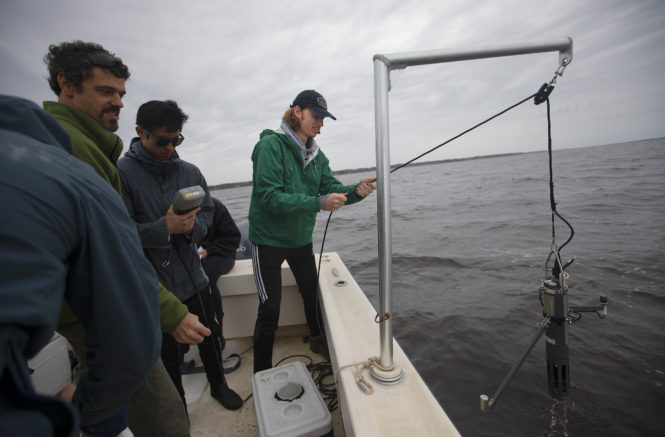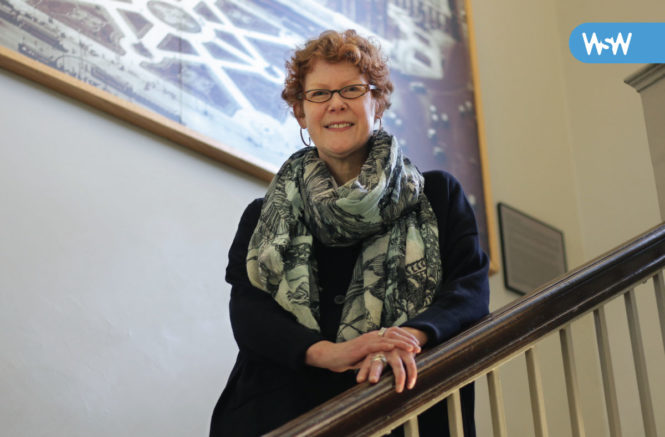Unearthing Environmental Research
Environmental education and research have deep roots at Carolina, but a lot has changed since the natural sciences came to campus almost 200 years ago. From the creation of a sanitary engineering department to relationships stoked by the internet, environmental study at UNC has evolved into a hotbed of research, education, and community outreach.
A Father for Social Science
The Odum Institute, the first social science research center in the world, has trained and supported hundreds of researchers specializing in everything from anthropology to city and regional planning to public health for the past 95 years. And it all exists thanks to the determination of one eccentric man.
Captain of the Coast
From the shores of New Jersey to the North Carolina coast, Pete Peterson has always loved the ocean. He's spent nearly five decades researching its marine life, fighting for its protection, and guiding the next generation of marine scientists to do the same.
Military Mindset
Before 2001, the use of prescribed psychoactive medications in U.S. Army warzones was restricted. But an increase in mental health awareness, low recruitment numbers, and longer deployments during the War on Terror — the longest-running conflict in American history — has shifted the rules and regulations for military mental health treatment. UNC medical anthropologist Jocelyn Chua speaks with active duty service members, veterans, and health care providers to learn more.
To Conquer the World
In the earth’s long history of rulers and warriors, few stand as tall as Alexander the Great. A Macedonian king who built an enormous empire across the Middle East and Asia in 11 years, Alexander was a man known for his strategic cunning. But in historian Fred Naiden’s groundbreaking work on Alexander’s role as a religious leader, he shines a new light on the ancient conqueror’s rise to the top.
A Veteran’s View
During his deployments to Afghanistan in 2012 and 2014, Reuben Mabry relied on his artwork for respite. Now a master’s student in UNC’s studio art program, he uses his eight-year career in the U.S. Army as the foundation for his work, creating paintings about the indoctrination of military members.
Combating Concussions
There are a thousand ways service members can receive mild traumatic brain injuries during training and active duty. Ten years ago, basic concussion testing protocols didn’t account for the intense activities required of this population. UNC researcher Karen McCulloch has worked to change that.
Cross-Cultural Connections
Documentary filmmaker Julia Haslett tells stories that transcend borders, giving her audience a window into worlds they couldn’t have explored otherwise, and are already connected to in ways they couldn’t have imagined.
All Hands on Deck
Capping off a semester of hard work, students in a biological oceanography class put their lessons to the test during a two-day, hands-on field trip to the Neuse River Estuary and the UNC Institute of Marine Sciences in Morehead City.
Eye-Opening Ice
After spending two months on a research expedition in Alaska last summer, UNC junior Carly Onnink, a biology major, shares her story of field-based discovery.
Artifacts of Alteration
Most visitors return from Jordan Lake with a tan, a photograph, or maybe a unique bird feather. Ayla Gizlice collects something else entirely — chunks of clay, plastic bags, rocks, and dead fish. The UNC senior incorporates these materials into an art project addressing how human actions shape the physical environment.
Nichola Lowe
Nichola Lowe is a professor in the Department of City & Regional Planning within the UNC College of Arts & Sciences. Her research unpacks the processes and practices that contribute to more equitable forms of regional economic development and labor market adjustment.



